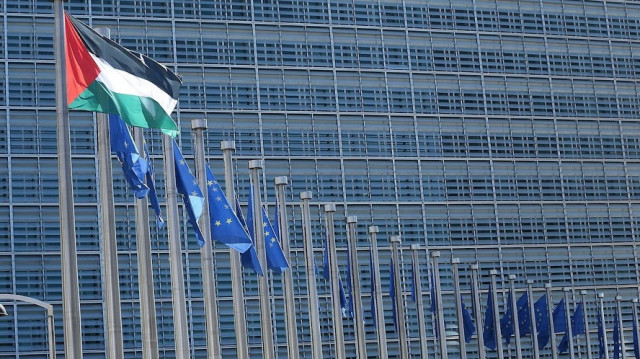EU Steps Up Aid Amid Gaza Tensions
Explore the European Union's ambitious financial pledges for Palestinian stability and diplomatic efforts amidst the ongoing conflict in Gaza.
Published April 15, 2025 - 00:04am

Image recovered from yenisafak.com
The European Union has announced a significant increase in its financial support to Palestine, outlining plans to provide €1.6 billion ($1.8 billion) by 2027 to aid recovery and stability efforts in the West Bank and Gaza. This announcement, made by the bloc's foreign policy chief Kaja Kallas, reinforces the EU's commitment to the two-state solution and aims to bolster infrastructure, humanitarian aid, and support for the private sector in these volatile regions.
Alongside this financial pledge, the EU has reiterated its dedication to a sustainable peace process, highlighting its role as a long-standing partner to the Palestinian Authority (PA). The proposed funding will be administered through a dedicated 'Palestine Donor Platform' intended to facilitate the Palestinian Authority's reform agenda, pointing towards an increased level of European involvement in the region.
During a Foreign Affairs Council meeting in Luxembourg, Kallas emphasized the importance of governance and good government in Palestine, stressing that the EU's assistance is contingent upon the PA implementing critical reforms, particularly in social governance. The meeting also established the first 'high-level political dialogue' between EU foreign ministers and Palestinian officials, including Palestinian Prime Minister Mohammad Mustafa.
While focusing on financial aid, the ongoing conflict in the Gaza Strip remains a crucial aspect of the EU's diplomatic challenge. The EU has called for a ceasefire, deploring the breakdown of peace as an Israeli offensive continues in Gaza. Senior Hamas figures have expressed a willingness to negotiate the release of Israeli hostages in exchange for halting the war, a gesture that presents a potential, albeit complex, path towards de-escalation.
The humanitarian impact of the conflict is starkly evident in both the rhetoric and actions of the EU. Their recent condemnation of the deaths of 15 humanitarian workers during an Israeli military operation in Rafah underscores the urgency for accountability and humanitarian relief. The statement penned by Kallas and other European Commissioners emphasizes the imperative of allowing unimpeded humanitarian access to Gaza, as current blockades threaten to exacerbate critical shortages of essential supplies.
Despite increasing tensions, diplomatic initiatives continue to unfold on multiple fronts. The EU's role as a mediator in facilitating peace talks and rebuilding efforts in Gaza is juxtaposed with broader international discussions, such as the Iranian nuclear talks, indicating the complex web of diplomacy required in the region. These negotiations, featuring Iranian and U.S. officials, remain pivotal as the EU navigates its delicate position amid regional disputes and international pressures.
Furthermore, as Arab nations devise reconstruction plans for Gaza, with recent proposals suggesting a multi-billion-dollar investment spanning several years, the EU has voiced its willingness to collaborate on key elements crucial for sustainable rebuilding. These efforts emphasize the importance of comprehensive strategies that address off-the-ground realities, including security and administrative logistics within the Palestinian territories.
As the situation evolves, the European Union's actions will continue to be scrutinized as a barometer of international resolve to stabilize the region and uphold human rights and humanitarian aid commitments. In this context, the EU's pursuit of a balanced diplomatic role showcases its broader commitment to fostering peace and stability within the Middle East.






